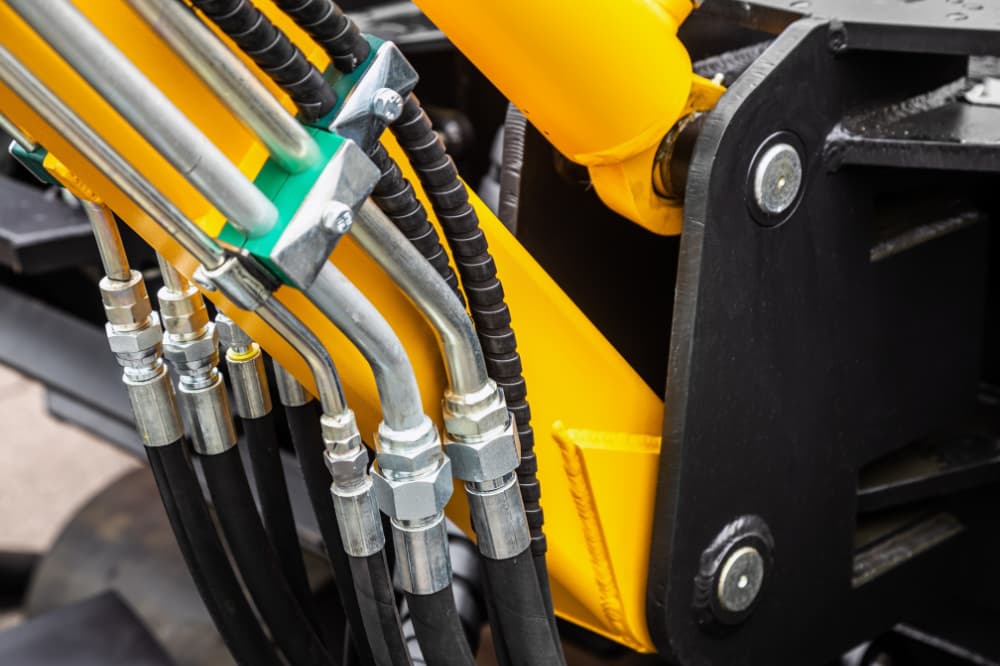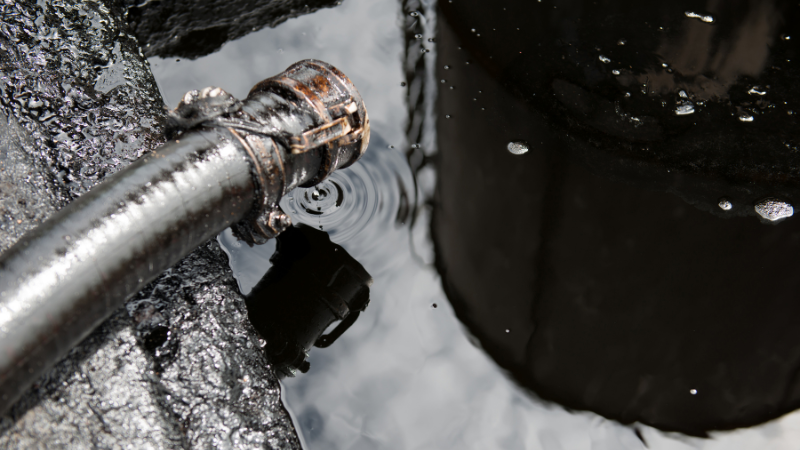What is a Hydraulic Accumulator?
February 16, 2024

When dealing with hydraulic systems, efficiency, reliability, and performance are vital. Hydraulic accumulators play a key role in achieving these objectives, serving as essential components in a wide range of industrial, automotive, and aerospace applications.
As technology continues to advance and industries evolve, the demand for innovative hydraulic solutions is expected to grow exponentially. This is where hydraulic accumulators have been at the forefront.
But what exactly is a hydraulic accumulator, and how does it contribute to the operation of hydraulic systems? In this blog post, we will explore the principles, types, applications, and benefits of hydraulic accumulators, shedding light on their significance in modern engineering.
An Overview of Hydraulic Accumulators
A hydraulic accumulator is a device that stores hydraulic energy in the form of pressurised fluid. It consists of a sealed chamber divided into two compartments by a movable piston or bladder.
One side of the chamber contains hydraulic fluid, while the other side typically contains gas, such as nitrogen or air. As hydraulic fluid enters the accumulator, it compresses the gas, storing potential energy that can be released when needed.
The primary function of a hydraulic accumulator is to store and release fluid under pressure to maintain system pressure, absorb shocks and pulsations, and provide auxiliary power during peak demand.
Accumulators play a pivotal role in hydraulic systems by efficiently managing fluid flow and mitigating pressure fluctuations, which in turn provides a multitude of benefits that significantly enhance system performance and longevity.
Types of Hydraulic Accumulators
Hydraulic accumulators come in various types, each designed to meet specific performance requirements and operating conditions.
Bladder accumulators feature a flexible bladder or diaphragm that separates the hydraulic fluid from the gas charge. As fluid enters the accumulator, the bladder compresses the gas, storing energy. Bladder accumulators are known for their compact design, high energy storage capacity, and low maintenance requirements.
Piston accumulators utilise a piston to separate the hydraulic fluid and gas within the accumulator chamber. As fluid enters the accumulator, the piston compresses the gas, storing energy. Piston accumulators are often used in high-pressure applications and environments with extreme temperature fluctuations.
Diaphragm accumulators employ a flexible diaphragm to separate the hydraulic fluid and gas compartments. Similar to bladder accumulators, diaphragm accumulators store energy by compressing the gas as fluid enters the accumulator. Diaphragm accumulators are valued for their reliability, durability, and compatibility with a wide range of fluids.
Spring accumulators utilise mechanical springs to store energy, rather than gas. These accumulators feature a piston or diaphragm mechanism that compresses a set of mechanical springs as fluid enters the accumulator. Spring accumulators are often used in applications where gas containment is impractical or undesirable.
Applications of Hydraulic Accumulators
Hydraulic accumulators find widespread use in a diverse array of industries and applications, thanks to their versatility, efficiency, and reliability.
Hydraulic accumulators are used to provide auxiliary power and maintain pressure stability in hydraulic presses used for metal forming, moulding, and assembly operations.
In renewable energy systems, such as wind turbines and solar power plants, hydraulic accumulators are employed to store excess energy and regulate power output.
Hydraulic accumulators are integrated into mobile equipment, such as agricultural machinery, construction vehicles, and material handling equipment, to absorb shocks, provide emergency power, and enhance operational efficiency.
Hydraulic accumulators play a critical role in aerospace and defence applications, including aircraft landing gear systems, missile launchers, and hydraulic actuators.
The Benefits of Hydraulic Accumulators
Hydraulic accumulators play a multifaceted role in enhancing the performance and efficiency of hydraulic systems, offering a range of benefits that translate into tangible advantages for businesses across various industries.
One of the primary advantages of hydraulic accumulators lies in their ability to store and release energy as needed, effectively regulating system pressure and minimising energy consumption.
By harnessing this energy-efficient technology, hydraulic systems can operate more effectively, leading to significant reductions in operating costs and environmental impact. This not only aligns with sustainability goals but also enhances the overall economic viability of hydraulic operations.
Furthermore, hydraulic accumulators contribute to smoother operation by mitigating pressure fluctuations and hydraulic shocks, which in turn reduces noise and vibration levels. This not only improves user comfort but also enhances system response and precision, resulting in higher levels of productivity and operational efficiency.
Moreover, hydraulic accumulators act as vital pressure reservoirs, providing a buffer against pressure spikes and potential equipment failures. This helps to enhance system safety and reliability by safeguarding against the damaging effects of hydraulic surges and fluctuations.
How Can We Help You?
At Pirtek Wirral, we specialise in providing hydraulic maintenance and repairs to businesses across the Wirral region and beyond. With years of experience and a team of highly skilled technicians, we are dedicated to keeping your operations running smoothly and efficiently.
Hydraulic systems are essential for many industrial and commercial applications, powering machinery and equipment essential to daily operations. From manufacturing plants and construction sites to transportation and agriculture, businesses rely on hydraulic systems.
With our 24/7 emergency response service, we’re here to help whenever you need us, providing rapid on-site repairs to minimise downtime and keep your business moving forward.
Conclusion
In summary, hydraulic accumulators stand as indispensable components within hydraulic systems, providing many benefits that are essential across various industries and applications.
From their key roles in energy storage and shock absorption to their contributions to enhanced performance and safety, hydraulic accumulators have solidified their place as cornerstone elements in hydraulic engineering.
Whether integrated into industrial machinery for heavy-duty operations, automotive systems for vehicle control and stability, or aerospace applications for precise hydraulic control, the versatility and reliability of hydraulic accumulators are unparalleled.
Their ability to store energy, dampen shocks, and regulate pressure not only optimises system efficiency but also ensures the longevity and reliability of hydraulic systems in diverse operational environments.
If you are in need of any kind of repair service to your hydraulic system, please do not hesitate to contact our team!

Jack is the proud new owner of Pirtek Wirral. After taking over the franchise in early 2023, Jack’s leadership has already led to Pirtek Wirral winning national awards. With his expertise in all hydraulic systems, Jack is passionate to grow Pirtek Wirral into a leading franchise.
Have Any Questions?
Get in touch with our team today.
- 0151 725 6777
- help@dynamichydro.co.uk




